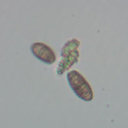Ginsenoside Rd Is Efficacious Against Acute Ischemic Stroke by Suppressing Microglial Proteasome-Mediated Inflammation.
Từ khóa
trừu tượng
A great deal of attention has been paid to neuroprotective therapies for cerebral ischemic stroke. Our two recent clinical trials showed that ginsenoside Rd (Rd), a kind of monomeric compound extracted from Chinese herbs, Panax ginseng and Panax notoginseng, was safe and efficacious for the treatment of ischemic stroke. In this study, we conducted a pooled analysis of the data from 199 patients with acute ischemic stroke in the first trial and 390 in the second to reanalyze the efficacy and safety of Rd. Moreover, animal stroke models were carried out to explore the possible molecular mechanisms underlying Rd neuroprotection. The pooled analysis showed that compared with placebo group, Rd could improve patients' disability as assessed by modified Rankin Scale (mRS) score on day 90 post-stroke and reduce neurologic deficits on day 15 or day 90 post-stroke as assessed by NIH Stroke Scale (NIHSS) and Barthel Index (BI) scores. For neuroprotective mechanisms, administration of Rd 4 h after stroke could inhibit ischemia-induced microglial activation, decrease the expression levels of various proinflammatory cytokines, and suppress nuclear factor of kappa light polypeptide gene enhancer in B cells inhibitor, alpha (IκBα) phosphorylation and nuclear factor kappa-light-chain-enhancer of activated B cells (NF-κB) nuclear translocation. An in vitro proteasome activity assay revealed a significant inhibitory effect of Rd on proteasome activity in microglia. Interestingly, Rd was showed to have less side effects than glucocorticoid. Therefore, our study demonstrated that Rd could safely improve the outcome of patients with ischemic stroke, and this therapeutic effect may result from its capability of suppressing microglial proteasome activity and sequential inflammation.




